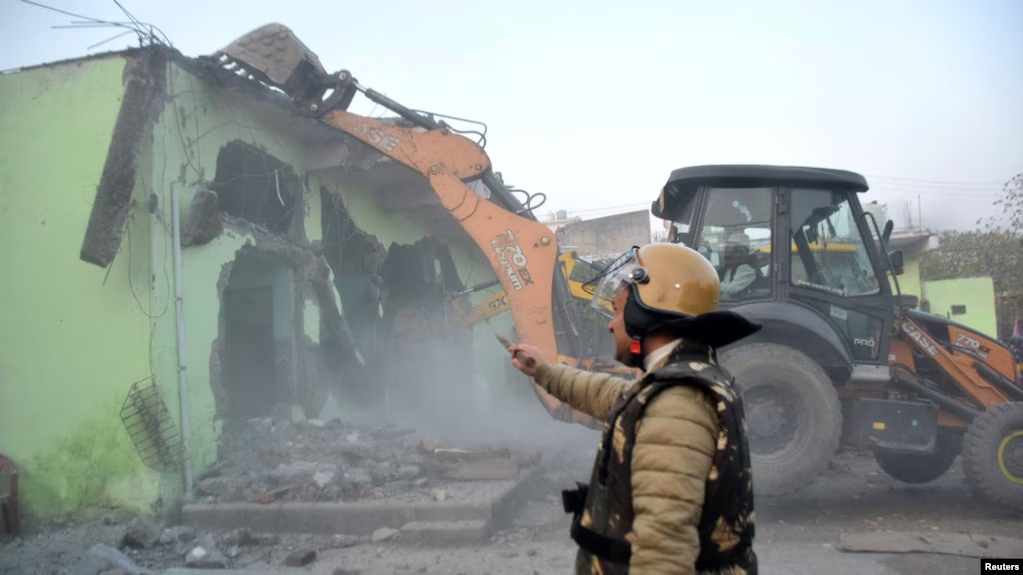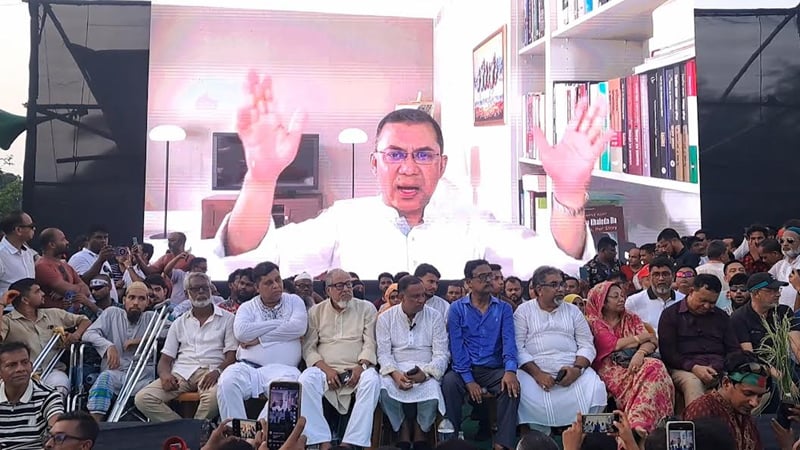
A police officer gestures as a bulldozer demolishes a property during a government demolition drive in Haldwani in the northern state of Uttarakhand, India, on Feb. 8, 2024: FILE PHOTO
Online Desk: Former Indian Supreme Court Justice Madan Lokur told VOA in an interview that in his view, the residential houses are being demolished as a form of collective punishment without the sanction of law.“Houses are demolished on suspicion of being encroachments or being illegally constructed. Residential houses cannot be constructed overnight. Were the municipal authorities sleeping when the alleged illegal construction was going on? Surely, they are guilty of dereliction of duty,” Lokur said.
After firebrand monk and Hindu nationalist BJP leader Yogi Adityanath became the chief minister of the northern state of Uttar Pradesh, or UP, in 2017, he declared that he would make the state crime-free. Adityanath asked his officials to take the “strictest possible actions against all criminals” in the state. Soon, the police and other civic officials in UP started taking “anti-criminal” actions, including the demolition of illegal constructions.
In 2022, after Nupur Sharma, a BJP spokesperson, made an allegedly offensive comment against the Prophet Muhammad, Muslims in UP staged a protest rally. Soon after, the state authorities demolished many houses and shops owned by those who had taken part in the rally. The same year, after communal tension broke out between Hindus and Muslims in the BJP-ruled state of Madhya Pradesh, the authorities pulled down at least 50 houses and shops — all owned by Muslims.
Over the past few years, houses, shops and other “illegal” structures owned by accused criminals, communal violence rioters and others have been demolished in states including UP, MP, Haryana, Assam and Maharashtra — in most cases where the BJP was in power. Over the past two years, Jamiat Ulema-e-Hind, a leading organization of Islamic scholars in India, filed multiple petitions to the Supreme Court seeking orders to prevent governments from demolishing homes or shops as a form of extrajudicial punishment.
While hearing one petition filed by Rashid Khan, a Muslim auto rickshaw driver, the court observed on September 2 that punitive demolitions cannot be justified, even if the property belongs to someone accused or convicted of a crime. On August 17, authorities demolished Khan’s one-story house in Udaipur, in Rajasthan state, which he had rented out to two families.
The court noted that it does not oppose the demolition of unauthorized structures. But it said the demolitions are not being carried out in accordance with proper procedures. “First issue notice, give time to answer and seek legal remedies, before going for demolition,” the court said, adding that it would soon issue national guidelines on the demolition of illegal structures.






